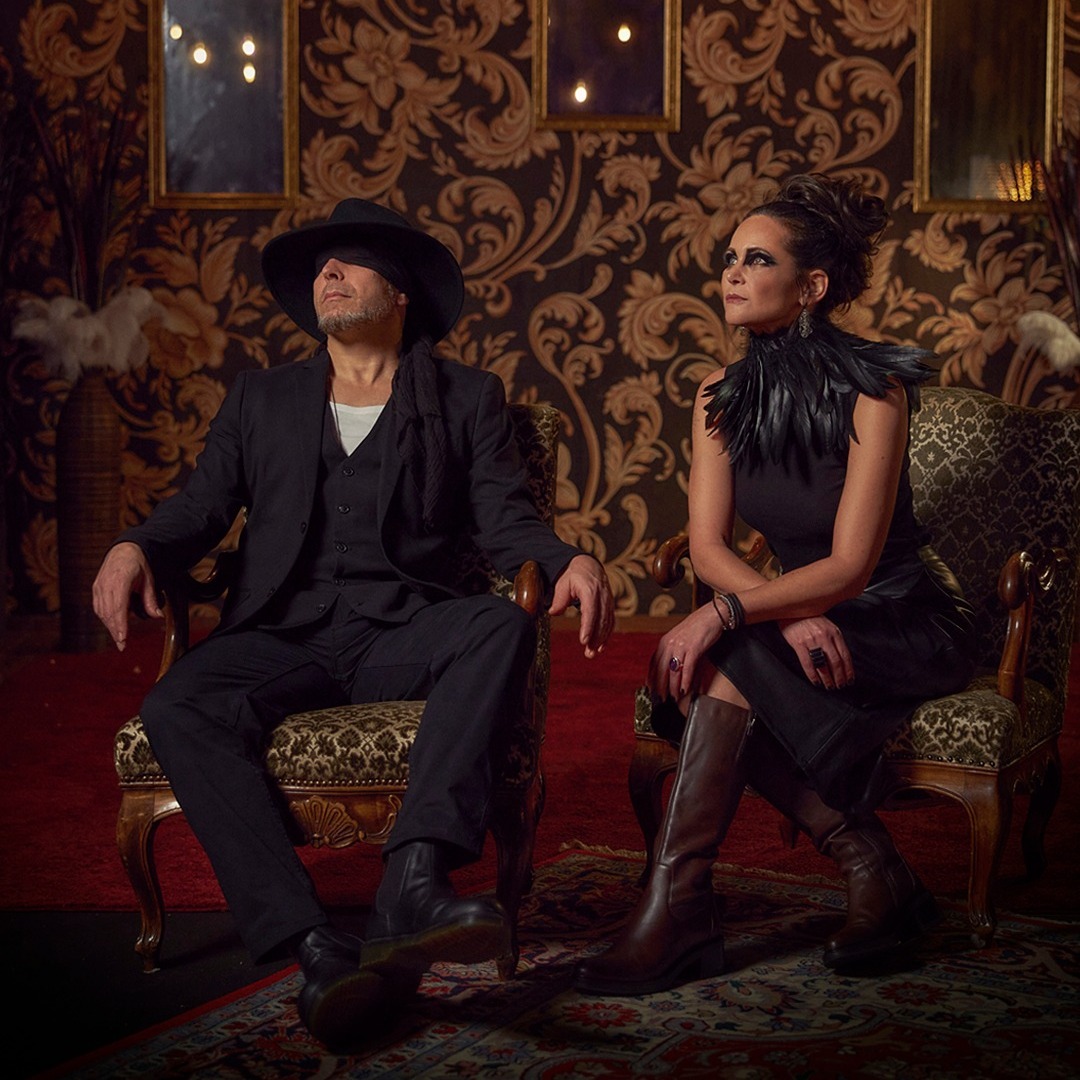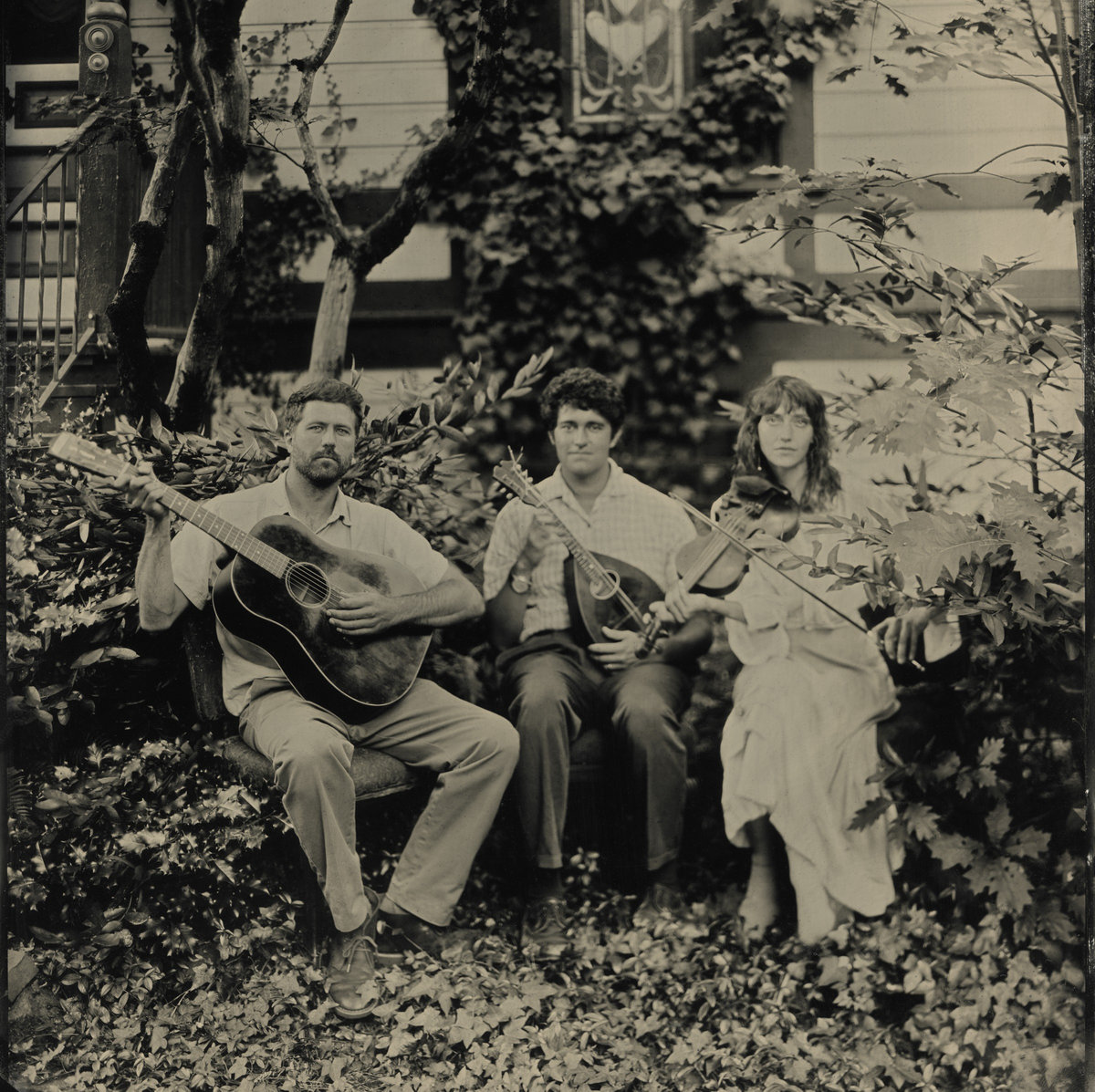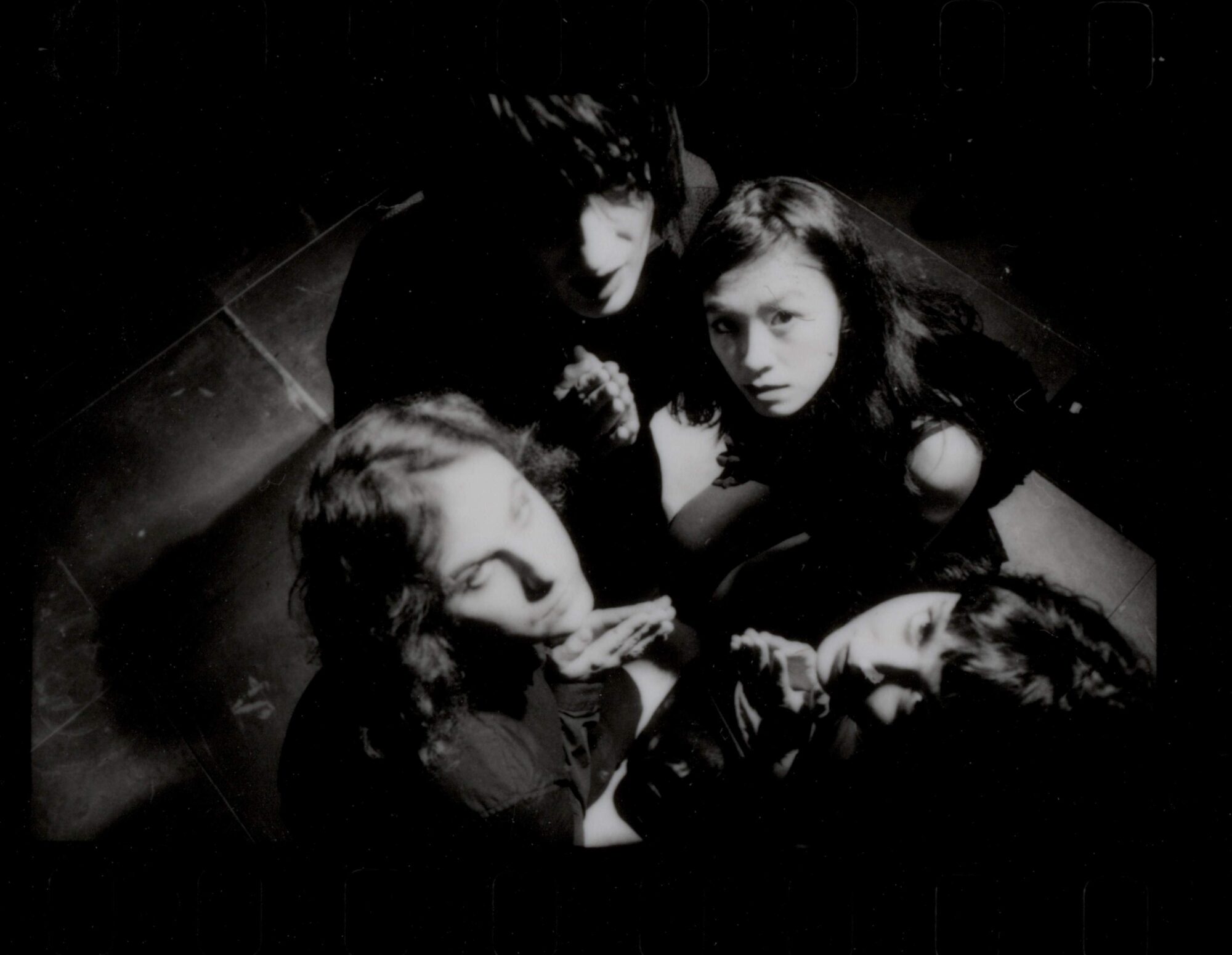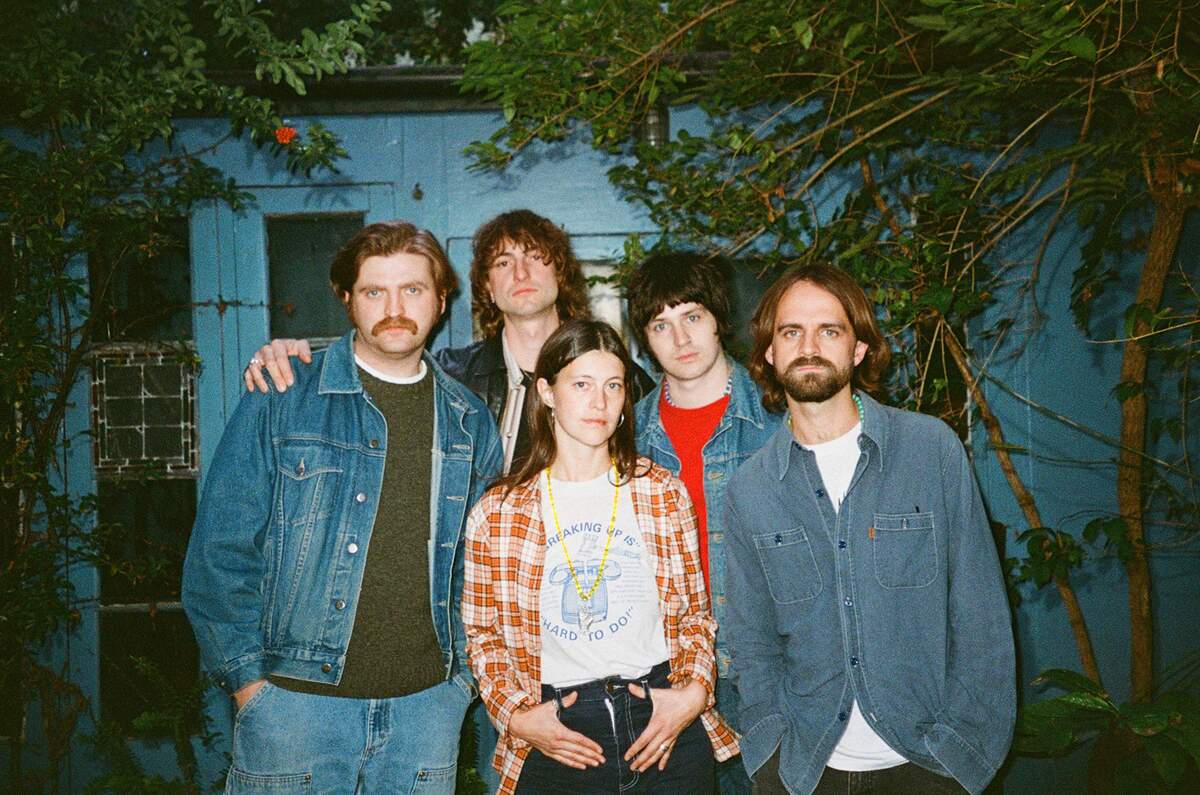Inside ‘Golden’: Slow Burn Drifters’ Cinematic Soundscape
Slow Burn Drifters’ debut album ‘Golden’ feels like stepping into a private film where time folds over itself.
The name itself evokes vast open spaces and lingering sunsets, perfectly matching the album’s cinematic soundscape. Ray Vale, the project’s driving force, wrote these songs after years of energetic, kinetic work, now focusing on atmosphere and emotional paradoxes where beauty and terror coexist beyond simple feelings. His self-taught background in both music and drawing shapes a songwriting process rich in imagery and storytelling. Violet Booth’s minimalist piano anchors the record, balancing its dense layers with elegant simplicity. Recorded and produced entirely by Ray, Golden emerged from solitude in Austria, far from his New Jersey roots, allowing deep introspection. Collaborations with legends like Jack Irons and Alain Johannes add effortless magic, though the heart of the album remains a personal ritual of surrendering to emotion and time. Listening to ‘Golden’ invites you to live inside your own film, where each note transforms your surroundings and leaves a lasting impression.
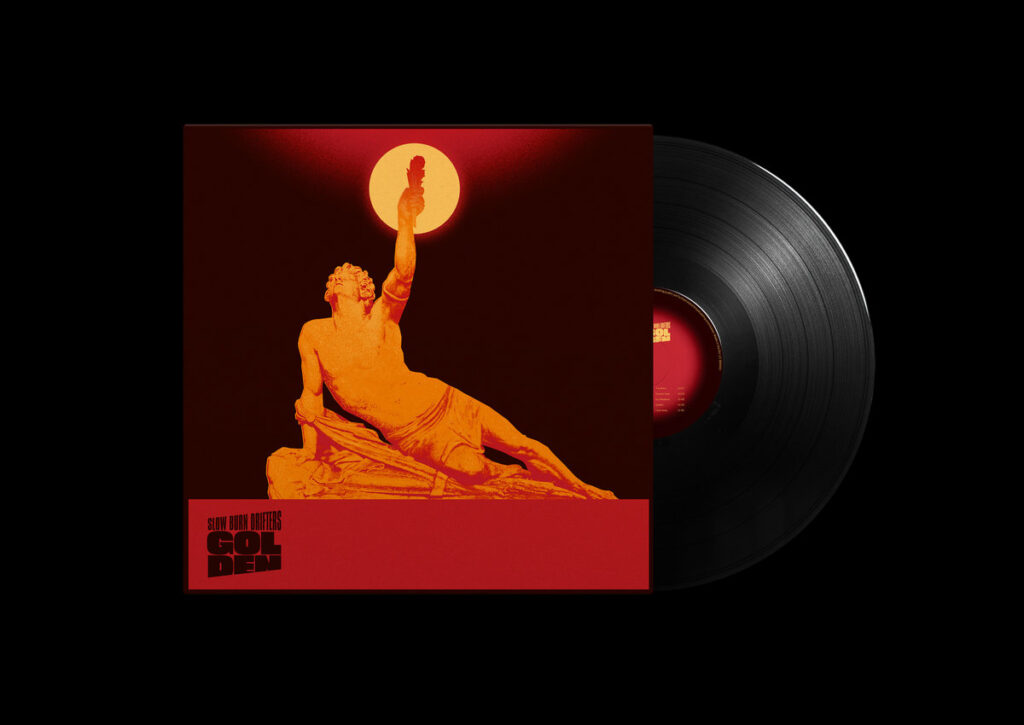
“Slow Burn Drifters sounded like it could just as easily be the title of a book or a film”
First off, Ray, Slow Burn Drifters is a name that feels like a promise, an atmosphere before the first note even plays. When did that name first click for you, and how do you think it reflects the sound of ‘Golden’?
Ray Vale: We came up with the name by Frankensteining together lists of words that conjured up a mood or a wide open space. Slow Burn Drifters sounded like it could just as easily be the title of a book or a film—something you’re familiar with but can’t quite place, and that appealed to us. It creates a scene in your head. So I guess that’s what drew us to it, or it to us? That’s also how it embodies the sound of the album. It’s the scene or space the songs resonate through. You know… sunsets, sunrises, the horizon, the vanishing point, that kind of thing.
You have released 11 records before this under another name, but Golden is your debut as Slow Burn Drifters. What made this the right moment for a new beginning?
A lot of what I’ve done in the past was more kinetic and energetically explosive, often balanced by more singer-songwriter type tracks. This time around, those types of songs eclipsed everything else I wrote. So presenting them under a title and band name that spoke to an atmosphere felt like the right thing to do, like the picture would’ve been incomplete if we didn’t.
There is something beautifully eerie about the way you described ‘Golden,’ this idea of a place “outside of time.” If you had to sum up the emotional core of the album in a single visual, what would it be? A sunrise? A half-lit motel room? A vast, empty highway?
Thank you. I don’t actually know much about chemistry, but there are ideas I find interesting in principle. From what I understand, when certain compounds are heated past a specific threshold, they become something else entirely. There’s a metamorphosis. I like to think that applies to emotions too. Like something being sublime—it’s not just joy or terror, but somewhere beyond both where they coexist. You know, past the threshold where feelings become emotional paradoxes. That’s the place outside of time, where beauty and terror glide hand in hand. They’re inseparable. It’s not something we can possess; we can only experience it. It’s elusive, and words don’t do it justice. It’s as personal as it is universal, so whatever that means for someone individually, that’s the place I’d want them to view the album from. Like they’re living in their own film.
Your voice and songwriting carry echoes of artists like Nick Drake and Scott Walker, but ‘Golden’ also has this sweeping, cinematic quality, like it could haunt a David Lynch film. Do you ever write songs with visuals in mind, or do the images emerge after the fact?
I’m a self-taught musician, and when I was a kid, all I did was draw. When I started playing guitar, drawing was still all I knew, so naturally I saw music through that lens. Chords, depending on their order, always told a story. Change one, and the story shifts. That fascinated me—and still does. So visuals are always present when I write. For me, it’s no different than gazing up at clouds and seeing what looks like a thin man chasing a fox. And if the fox is being chased, it probably wants to hide behind that other cloud over there that looks like half an upside-down garbage truck. But then you ask, why only half? Why is it upside down? The answer is where that song or story goes next. A song might begin with some chords, a few lines, or an image. It’s not always the same, but as it emerges it remains in a dialogue with the imagery.
Violet Booth’s piano feels like an essential thread through the record. What does her playing bring to the songs that was not there before?
I agree. Violet is also self-taught, and for her, everything comes down to using simplicity to anchor the mood and atmosphere of a song. The way her playing contrasts with some of the denser elements swirling around in our songs is at the core of our chemistry. I read something Rick Rubin said once about asking what you can remove from a picture and still recognize exactly what it is, and then stopping there. That reminded me of Violet’s take on things.
You are originally from Northern New Jersey, staring at the Manhattan skyline, and now you are in Austria, surrounded by completely different landscapes. How has that shift in environment seeped into your music?
Honestly, even though I grew up in the U.S. and lived there most of my life, I’ve always been someone who exists in their own world—a kind of private limbo—and I still am. I really value and respect the culture here in Austria, but I’m not drawing conscious inspiration from it. Maybe I am unconsciously? What I do know is that living in a remote area gives me the solitude I need to hear myself think while I’m working. That might drive someone else nuts, but I’m comfortable being uncomfortable in limbo.
‘Golden’ features some serious heavyweights—Jack Irons, Alain Johannes, Chris Ward, Matt Owens. What was it like bringing them into your world? Were there any moments in the studio where you just stepped back and thought, “Damn, this is really happening”?
Yeah, having them involved has been a dream. I actually had the same dream once before, when I worked on another record, and having that foundation made things even more telepathic this time. I’m usually too deep in the work to notice much else in the moment, but there are times I’ll look around and think, “I grew up listening to that guy in the chair across from me. Life’s weird.” When you hear Jack or Alain play in a room, it’s all right there. You instantly understand that their reputation isn’t some fluke. It’s the result of this effortless magic that flows out of them. And they also happen to be wonderful human beings, which doesn’t hurt either.
You produced and recorded the album yourself. Is there a certain magic in having complete control over the sonic universe of your songs, or do you ever miss the chaos of a more traditional recording setup?
There are definitely advantages to self-producing, but I’m often walking a tightrope between staying objective and getting lost in the wilderness for three days chasing an idea that isn’t working. There’s a kind of chaos in finding my way back out, and other strains of chaos too, but no, it’s not the same as a traditional setup. And I do miss that. Self-producing, for me, was born out of necessity. It’s always about the work. It’s a daily routine, one I love. I also hate it, but I love it just a little more than I hate it. Most mornings, there’s a short window when I can listen to what I worked on the night before with fresh ears. From there, I’ll make a mental list of what to keep, change, or try next. It’s my way of leaving breadcrumbs for the guy who’s probably gonna vanish in the woods seven hours later. And on it goes.
You mentioned the idea of ‘Golden’ as a kind of emotional ritual—pleasure and pain, surrendering to the music. What is a song on the album that still hits you in the gut every time you play it?
A lot of them hit me that way when I first wrote them. I gravitate toward lines and melodies that make me feel emotionally uneasy or vulnerable. I remember singing early versions of more personal tracks like ‘The Wind,’ ‘Forever New,’ ‘Ivy Whispers,’ and ‘I Still Live,’ where I’d suddenly get choked up. But over time, I build up a tolerance, like your body adjusting to a hot bath. Writing is its own form of producing. You’re painting a picture and shaping how it looks and feels. Between writing and producing, I’ll listen to a song way past the point of what’s humane. It always takes a while before I can hear it again as a cohesive piece. But when I perform live, all of that falls away, and on a good night, a song can take me right back to where I was when I wrote it.
There is this fascinating contradiction in your music—both timeless and modern, dreamlike but rooted in something real. Do you ever feel like you are writing for a different era, or do you think we are in a moment where people are craving this kind of slow burn storytelling again?
I think those of us old enough to have grown up with slower storytelling don’t view it as boring or slow. It just feels more natural, less forced. Certain things can’t be rushed by nature. Thirty or forty years ago, it wasn’t weird to watch a film where a shot just lingers. Space was necessary. The unexplainable wasn’t always a problem to be solved. That approach is seen less now. Everything has to be frantic, defined in bold letters. But if you want depth from a song or film, the pace matters. If it’s a dopamine rush you’re after, TikTok’s right there; keep pressing fast forward. And there’s value in that too. But applying a “faster is always better” mindset in art and life is almost like saying the best poets use the longest words, and that’s kind of ridiculous. I’m not sure what people are craving right now, maybe sanity. We’re not trying to appeal to a particular audience; we’re just making the kind of music we’d want to hear. If it resonates with what some people are craving, that’s great. If it doesn’t, we’re not putting out the Cliff Notes version anytime soon.
If ‘Golden’ were to soundtrack a specific film scene, one that already exists or one yet to be made, what kind of moment would it be?
That’s tough to answer because too many scenes come to mind. But if I had to pick one, I’d say the long D-Day beach scene from Saving Private Ryan because of one particular aspect that connects to where we’re coming from. There’s all this horrific carnage: everything exploding, bullets and sand flying, people screaming or moaning in agony. The violence is mindless and mechanical. And yet, right at the edge of it is the ocean. The waves just keep rolling back and forth like they would if kids were playing nearby or no one was there at all. The ocean isn’t choosing sides; it just is. That’s what humans do. Civilizations come and go like waves. I like to focus on the ocean in that scene. It might sound morbid or like escapism, but I experience it as a sobering reminder that beauty and horror coexist. They’re part of the same old fabric. I wouldn’t call that scene a mood exactly; it’s more of a state. But I could definitely see one of our softer songs playing there.
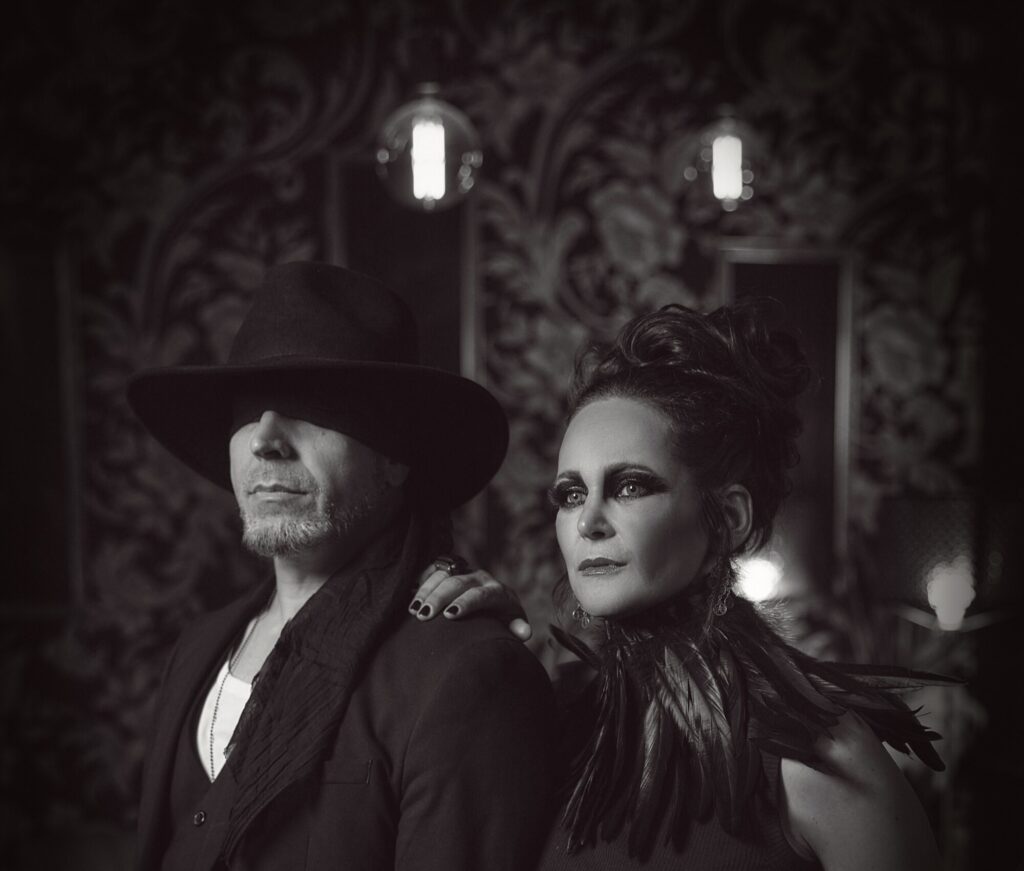
Finally, when someone finishes listening to Golden, what is the ideal lingering feeling you hope they walk away with?
Well, as we know, music is invisible. We can’t see it, but we can see what it does to people. It has the power to transform your surroundings without changing a single visual detail. This is a lot to ask of a listener, but I’d like them to feel like the album transformed their surroundings for a little while. Like they were living in their own film while it was on. Not our film, their film.
Klemen Breznikar
Headline photo: Darko Todorovic
Slow Burn Drifters Official Website / Facebook / Instagram / X / Bandcamp / YouTube

